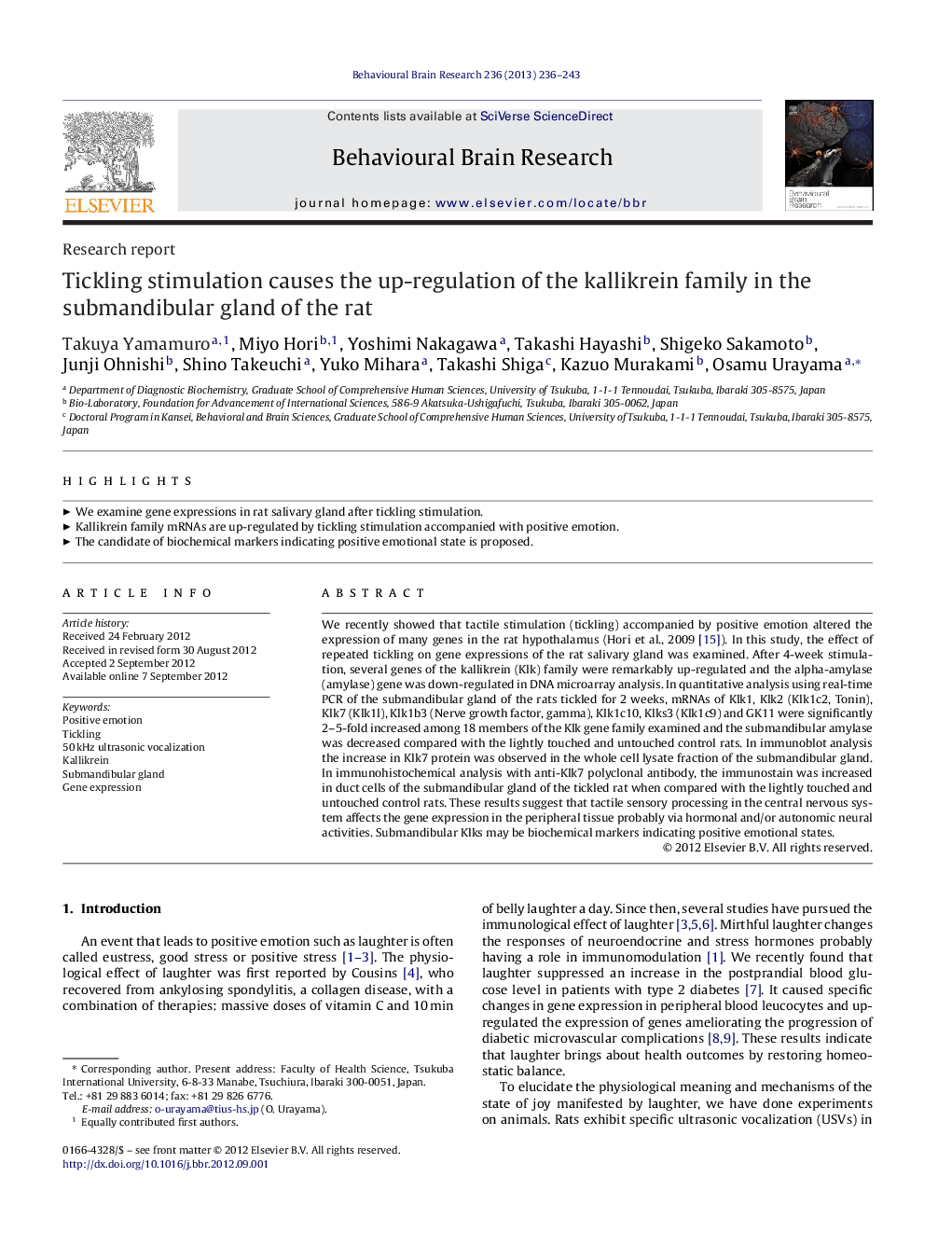| Article ID | Journal | Published Year | Pages | File Type |
|---|---|---|---|---|
| 6259483 | Behavioural Brain Research | 2013 | 8 Pages |
We recently showed that tactile stimulation (tickling) accompanied by positive emotion altered the expression of many genes in the rat hypothalamus (Hori et al., 2009 [15]). In this study, the effect of repeated tickling on gene expressions of the rat salivary gland was examined. After 4-week stimulation, several genes of the kallikrein (Klk) family were remarkably up-regulated and the alpha-amylase (amylase) gene was down-regulated in DNA microarray analysis. In quantitative analysis using real-time PCR of the submandibular gland of the rats tickled for 2 weeks, mRNAs of Klk1, Klk2 (Klk1c2, Tonin), Klk7 (Klk1l), Klk1b3 (Nerve growth factor, gamma), Klk1c10, Klks3 (Klk1c9) and GK11 were significantly 2-5-fold increased among 18 members of the Klk gene family examined and the submandibular amylase was decreased compared with the lightly touched and untouched control rats. In immunoblot analysis the increase in Klk7 protein was observed in the whole cell lysate fraction of the submandibular gland. In immunohistochemical analysis with anti-Klk7 polyclonal antibody, the immunostain was increased in duct cells of the submandibular gland of the tickled rat when compared with the lightly touched and untouched control rats. These results suggest that tactile sensory processing in the central nervous system affects the gene expression in the peripheral tissue probably via hormonal and/or autonomic neural activities. Submandibular Klks may be biochemical markers indicating positive emotional states.
⺠We examine gene expressions in rat salivary gland after tickling stimulation. ⺠Kallikrein family mRNAs are up-regulated by tickling stimulation accompanied with positive emotion. ⺠The candidate of biochemical markers indicating positive emotional state is proposed.
